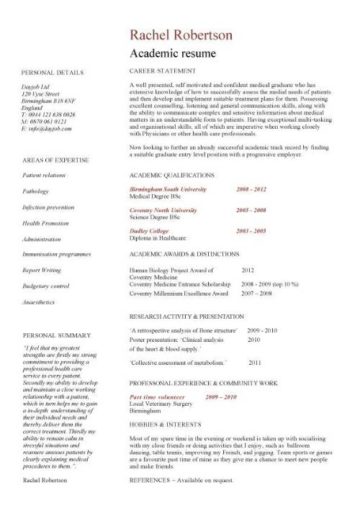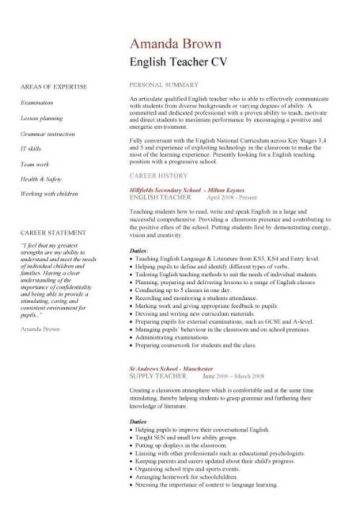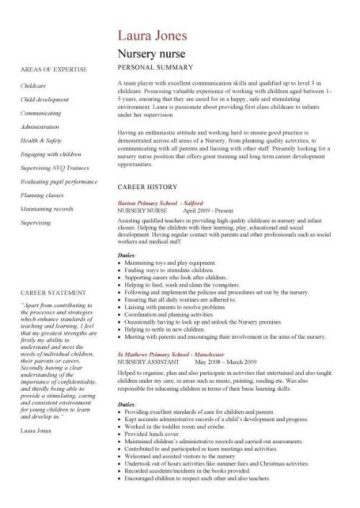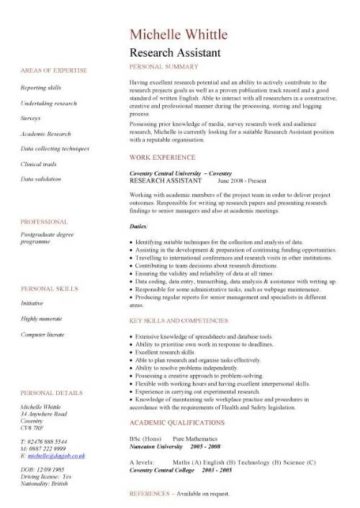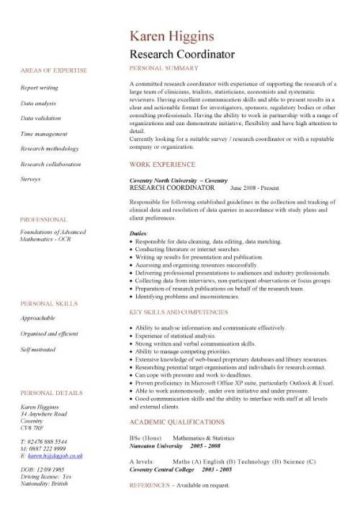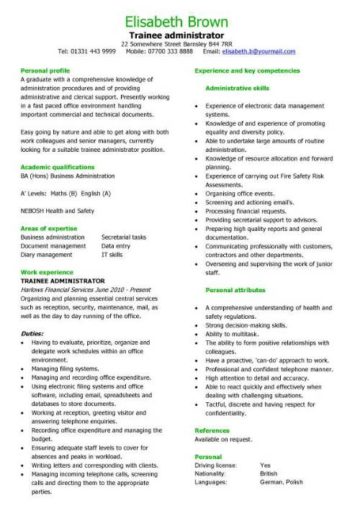These type of CVs should focus on your lecturing, teaching and research skills and experiences. The purpose and target of your curriculum vitae should be to outline your credentials for any academic position, fellowship, or grant applications.
Traditionally a CV should only be two pages long, however due to the detailed nature of this industry it is acceptable to have a three page CV. It should be targeted at the scientific, educational, or academic fields and must be concise and focused only on relevant skills and abilities.
If you are not sure what to put in your CV then you can use our professionally designed examples below as guides and templates.
Academic CV examples
(Click on image to see full version)
How to write an Academic CV
Think of your CV as an advertising brochure that sells a product, and that product is you. At the top of your first page place your strongest academic achievements and research successes, such as any publications in highly ranked journals or invitations to prominent conferences.
How long should an Academic CV be?
Unlike a typical CV, there is not limit on the length of an academic CV. The extra space is needed to include details of a candidates academic achievements, background, training, research interests, published works and academic honours or awards etc.
What to include in an academic CV
- Awards for research projects.
- Only hobbies that are interesting or relevant.
- Research experience.
- Conferences attended.
- Skills at attracting funding.
- Student demonstrating.
- Supervision of lectures.
- Seminar leading experience.
- Analytical techniques.
- Committee membership.
- Course organisation.
- Membership of learned societies.
- Membership of professional bodies.
- Academic writing.
- Research supervision.
- Specialist research.
- Reports and patents.
Target your CV at the role
Your CV is a picture of your academic accomplishments laid out in an easy-to-read format that future employers can scan quickly to determine if you are the best candidate for their vacancy.
- Do this by focusing on those achievements and competencies that are relevant to the role you are applying for.
To grab the hiring manager attention consider having special sections for Dissertation Abstracts, Statement of Research Interests, and a Statement of Teaching Interests.
Focus on giving prominence to your academic achievements. Give a list of publications, especially if they have been in highly ranked journals. Mention any funding for research projects that you may have attracted. List how you carry out your research, the methods or techniques you employ and experience of fieldwork.
Avoid being too technical
Try not to make it too technical so that people outside of the academic world can also understand it. Jargon that scholars or university hiring managers understand might not be suitable when applying for non-academic vacancies.
Include you academic teaching experience
Give information on what you taught, where you taught it and also when you taught it. Mention any mentoring of students.
Research experience
Write a brief statement listing your postdoctoral, doctoral and possibly undergraduate research. Include both substance and techniques you employed. If there is space then briefly mention the institution, professor, and project.
Your education
List academic qualifications in reverse chronological order. Give details of your academic qualifications including any honours achieved, and any academic group memberships you belonged to.
Giving details of your publications
There is no need to go into too much detail, simply state the date, title of paper and of the journal, including volume number.
Academic cover letter examples
Academic cover letter
Academic Advisor cover letter
Academic Coordinator cover letter
Academic Counselor cover letter
Academic resume example
Academic resume
Academic CV examples for various job roles
Academic administrator CV template
Cover letter examples:
Teaching assistant cover letter
Related links:


